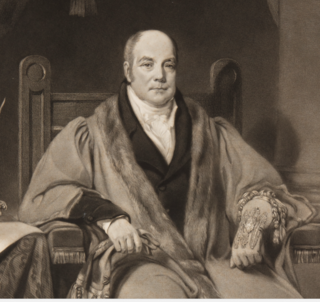
Poole is a coastal town and seaport on the south coast of England in the Bournemouth, Christchurch and Poole unitary authority area in Dorset, England. The town is 21 miles (34 km) east of Dorchester and adjoins Bournemouth to the east. Since 1 April 2019, the local authority is Bournemouth, Christchurch and Poole Council. The town had an estimated population of 151,500 making it the second-largest town in the ceremonial county of Dorset. Together with Bournemouth and Christchurch, the conurbation has a total population of nearly 400,000.

Battle Harbour is a summer fishing station, formerly a permanent settlement, located on the Labrador coast in the province of Newfoundland and Labrador, Canada. Battle Harbour was for two centuries the economic and social centre of the southeastern Labrador coast. Mercantile saltfish premises first established there in the 1770s developed into a thriving community that was known as the Capital of Labrador. It fell into decline following reductions in the cod fishery and a major fire in 1930, and was abandoned as a permanent settlement following government resettlement activity in the 1960s.

Daniel Woodley Prowse, was a lawyer, politician, judge, historian, essayist, and office holder.
John Perkins Cushing, called "Ku-Shing" by the Chinese, was a wealthy American sea merchant, opium smuggler, and philanthropist. His sixty-foot pilot schooner, the Sylph, won the first recorded American yacht race in 1832. The town of Belmont, Massachusetts is named after his estate.

Admiral Sir Henry Prescott was an officer of the Royal Navy who served during the French Revolutionary and Napoleonic Wars, and was later the Governor of the Newfoundland Colony.

Trinity is a small town located on Trinity Bay in Newfoundland and Labrador. The town contains a number of buildings recognized as Registered Heritage Structures by the Heritage Foundation of Newfoundland and Labrador.
John Bingley Garland, merchant, politician, became the first Speaker of the House of Assembly of Newfoundland in 1833.
Oderin Island is an island in the Canadian province of Newfoundland and Labrador in western Placentia Bay, located about 30 km northeast of Marystown. Initially recorded as a fishing post of the French and later an outpost of the English, the island came to be inhabited at some time before 1704. The island no longer has any permanent residents due to a resettlement program in 1966.
Snow Parker was a merchant, judge and political figure in Nova Scotia. He represented Queen's County in the Nova Scotia House of Assembly from 1801 to 1826.

General Sir Edward Kerrison, 1st Baronet was a British Army officer and politician.
The history of Poole, a town in Dorset, England, can be traced back to the founding of a settlement around Poole Harbour during the Iron Age. The town now known as Poole was founded on a small peninsula to the north of the harbour. Poole experienced rapid growth as it became an important port following the Norman Conquest of England.
Roger Forstall Sweetman was a merchant and political figure in Colony of Newfoundland. He represented Placentia and St. Mary's in the Newfoundland and Labrador House of Assembly from 1832 to 1836.
William Hooper was an English-born merchant and political figure in Newfoundland. He represented Burin the Newfoundland and Labrador House of Assembly from 1832 to 1836.
Robert Job was a merchant and political figure in Newfoundland. He was elected to represent Bonavista Bay in the Newfoundland and Labrador House of Assembly in 1836.
James Stimpson was a British cathedral organist and Birmingham City Organist.
John Slade was a merchant and politician in Newfoundland. He represented Fogo in the Newfoundland House of Assembly from 1842 to 1847.
George Lilly was a lawyer, official and judge in Newfoundland.
Robert Oke, H.M. was the first chief inspector for the Newfoundland Lighthouse Service and served from at least 1848 to 1870. Oke installed the first light mechanism at the Cape Bonavista Light in 1842, and installed the famous Isle of May light mechanism at the Cape Pine Light in 1850, which was later moved to Harbour Grace Island and finally to Cape Bonavista, where it can be viewed today.

Henry Overton Wills II of Ashley House, in Bristol, England, was a tobacco merchant who in 1830 together with his elder brother William Day Wills co-founded W.D. & H.O. Wills, a company which by the late 1800s had become Britain's largest importer of tobacco and manufacturer of tobacco products.

Thomas Daniel was a shipping magnate, financier and sugar merchant in Bristol and London. His omnipotence was such that he was known as the "King of Bristol" and in later life "The Father of Bristol" because of his family's power in corporate and political affairs for over 50 years.







